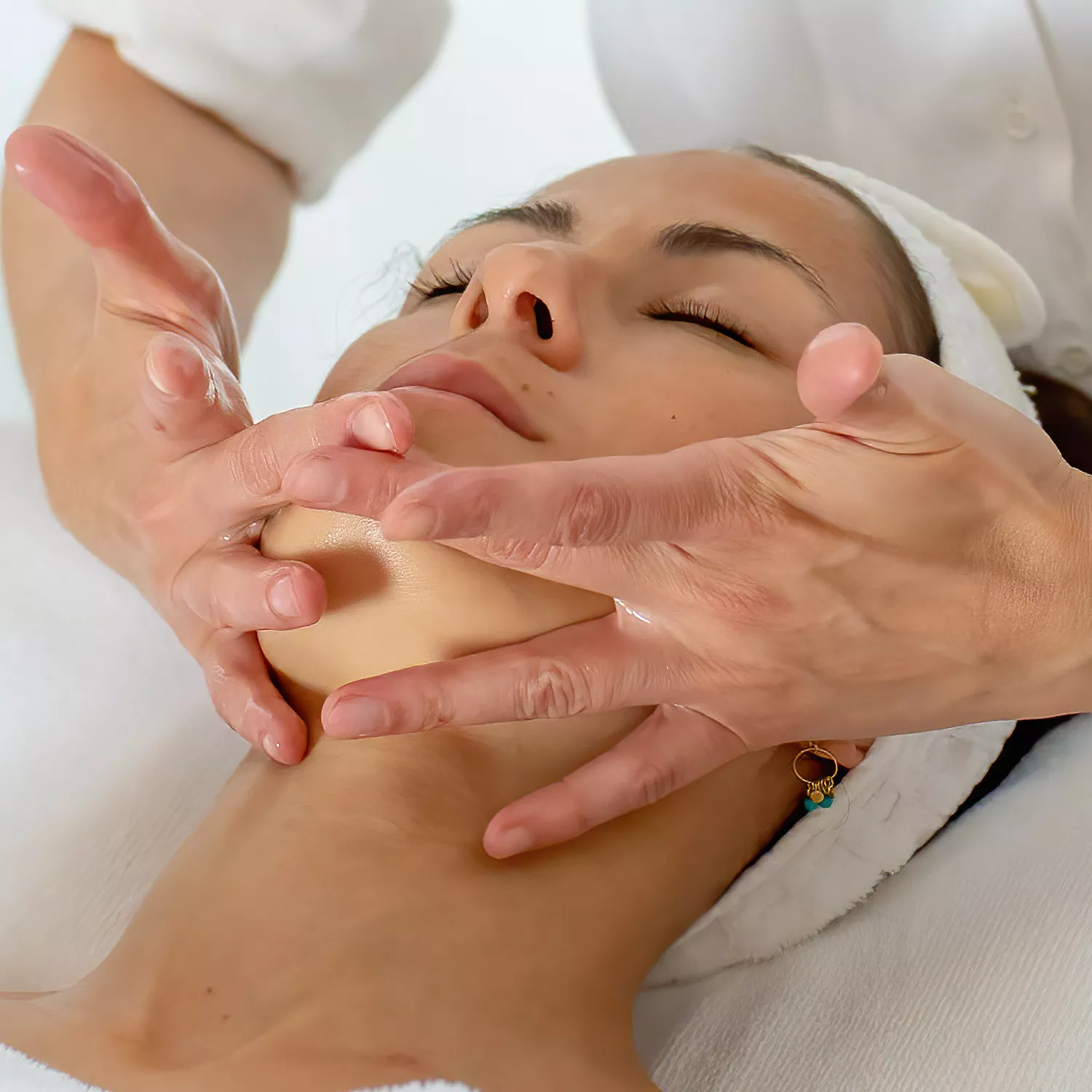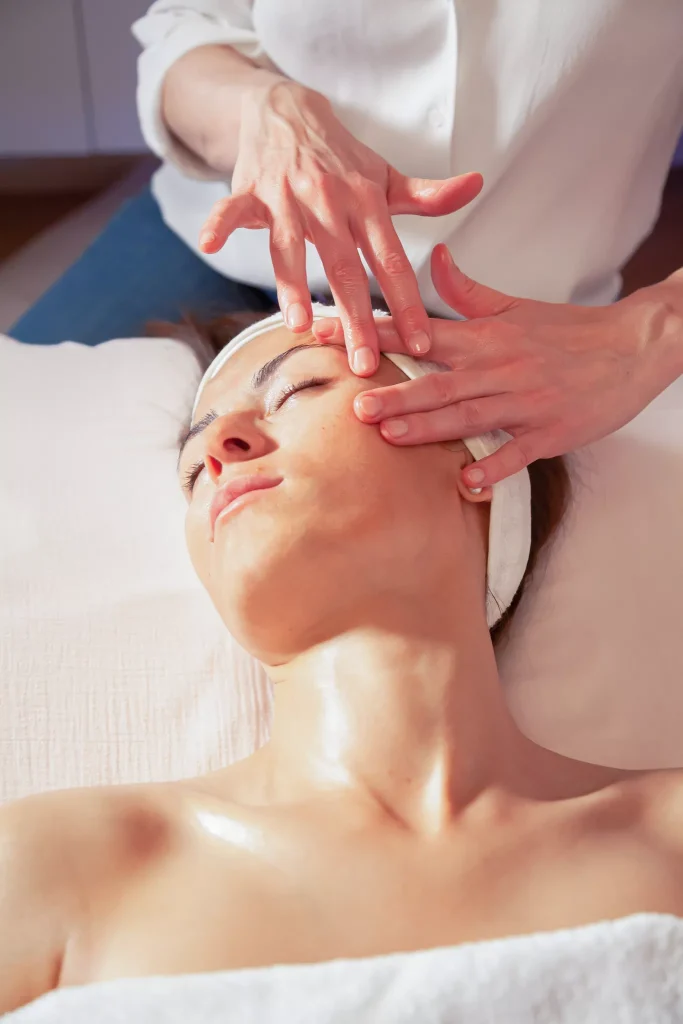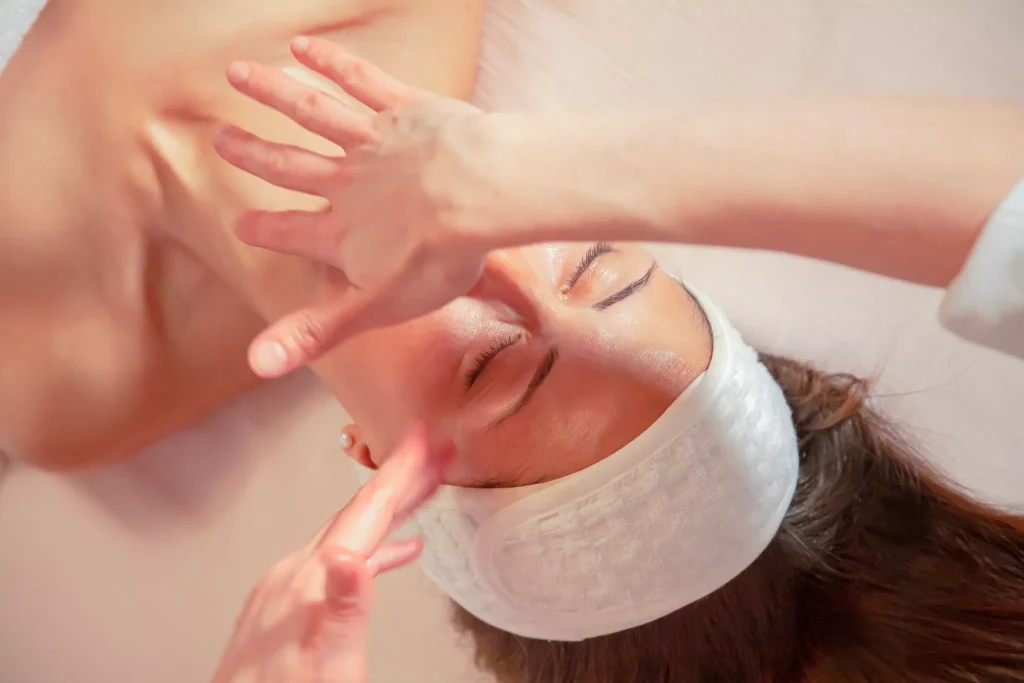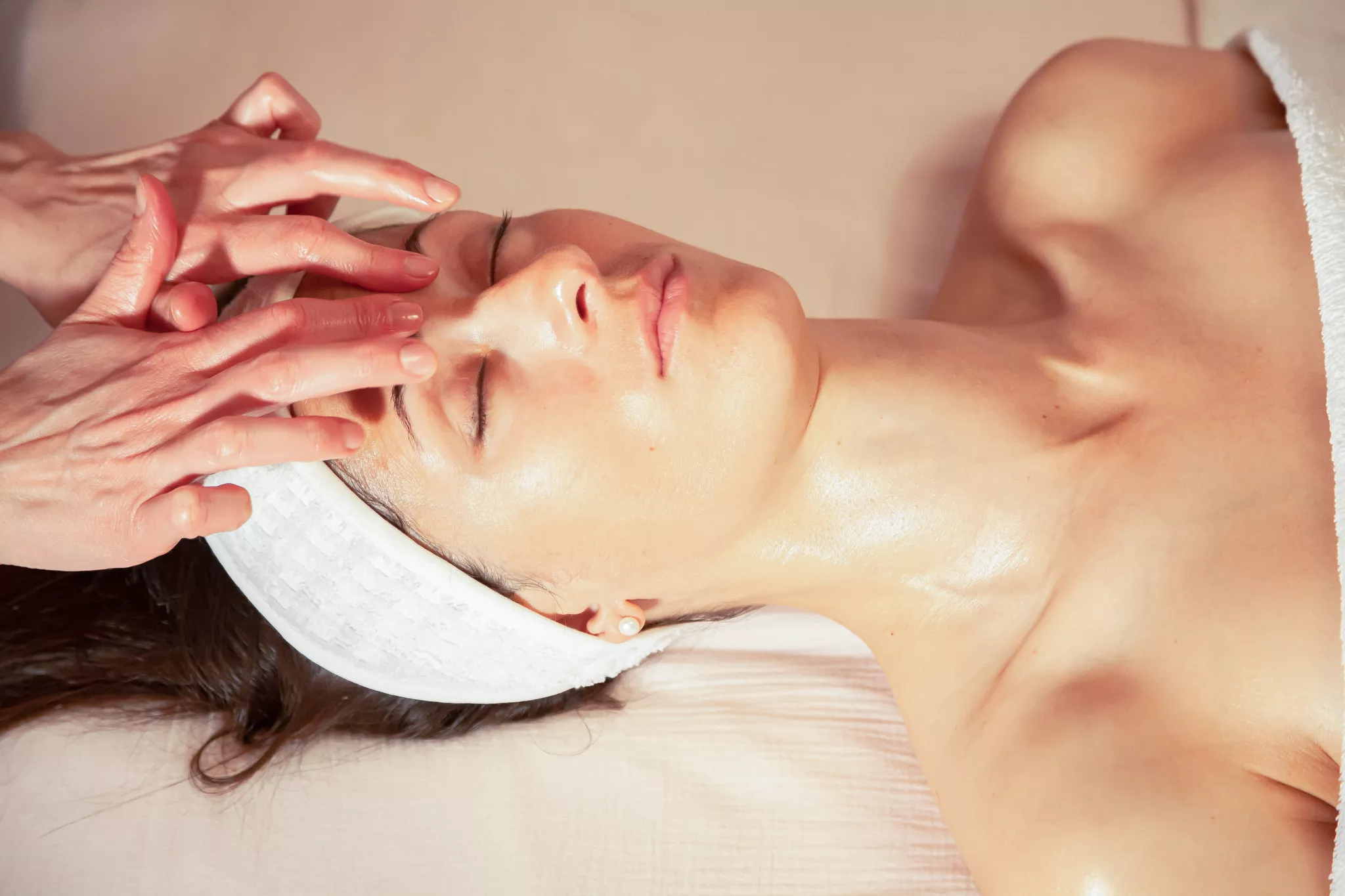
Authentic Kobido
- by Nancy RICHANI
- 30 min - 65 € / 45 min - 90 €
Give your face a lift and rejuvenate with this ancestral ritual, born in the Imperial Court of Japan in the 15th century. This exclusive massage technique, performed by Nancy’s dancing hands, restores firmness and radiance to your face. The pressure exerted on the acupuncture points activate the circulation of your vital energy, generating beneficial effects on the whole body. Your skin is truly smoothened and regains the beauty of a baby’s skin.
This ancestral facial massage has been renowned for several centuries in Japan as one of the best facial care techniques . Discovered only few years ago in the Western World, this beauty ritual was once reserved only for Empresses. Unlike other occidental facial massages, it seeks not only to improve the quality of the skin, but also reaches deep into the muscle structure and the vital energy (Ki). By working directly on the acupressure points and the meridians that are located on the face, Kobido improves the circulation of the Ki, while balancing and aligning the condition of the internal organs. The benefits of Kobido provide more than just a simple facial care: they improve the overall health and well being.
In Japan, beauty is the reflection of good physical, psychological and spiritual health. The face is the most visible indicator of the Ki’s condition. Therefore, a beautiful glowing face can only be achieved if the Ki is balanced.
Kobido, dating back to the 15th Century, is the most ancient and the most technical of Japanese massage techniques. It was created during a competition between two masters of “Anma” (an antique Chinese massage). The competition which lasted for months, involved performing facial treatments using one of the most difficult Anma techniques, “Kyoku-te”. During the competition, the two masters, recognizing each others respective skills decided to join forces and work together to create a new house called “Kobido”. They established 48 techniques, each of which involves many variants: Today, Kobido features more than a thousand different techniques which have been passed down from masters to students across generations.
Dr Shogo Mochizuki, who trained Florence Laval, is the 26th Generation Master of the Kobido art. Currently, only about 50 practitioners (including Mrs. Florence Laval) are trained in the art of Kobido in Europe by the master himself.
A natural facelift
Kobido is like a dancing of fingers, floating upon your face. The different movements performed with precision on every inch of your skin involve a complex blend of stroking, kneading, tapping, vibrations and pressures. The massage is smooth, subtle and deep – depending on the nature of the skin and on the area to be treated.
A gentle stroking motion establishes the first contact with the face and heats up the skin. The kneading of the skin releases the fascia and other connective tissues, while relaxing the muscles and smoothening out facial wrinkles. A series of fast, subtle tapping movements invigorates the muscles, activates the microcirculation, releases the toxins and impacts the production of collagen. As a result of vibrations, the lymph is drained and the toxins are expelled. This technique contributes significantly to the facelift-effect. The pressure on the skin stimulates the energy points related to the organs and the nervous system, thus improving the overall health status.



Benefits:
- Provides a better oxygenation
- Expels toxins
- Brings a glow to the face
- Provides a smoother skin
- Prevents the effects of aging: reduces and prevents wrinkles
- Tones and tightens the skin, invigorates the muscles, redesigns the shape of the face (facelift-effect)
- Erases the signs of fatigue
- Stimulates the production of collagen
But also:
- Balances the nervous system
- Kobido can have beneficial effects on insomnia, anxiety and digestive disorders, by stimulating the face’s energy flow
The frequency:
At the beginning, we recommend two sessions a month in order to activate the benefits of the treatment. After this period, a treatment every three/four/six weeks is recommended (depending of the stade of your skin and your age) to the maintain the benefits and prevent the skin ageing effects.